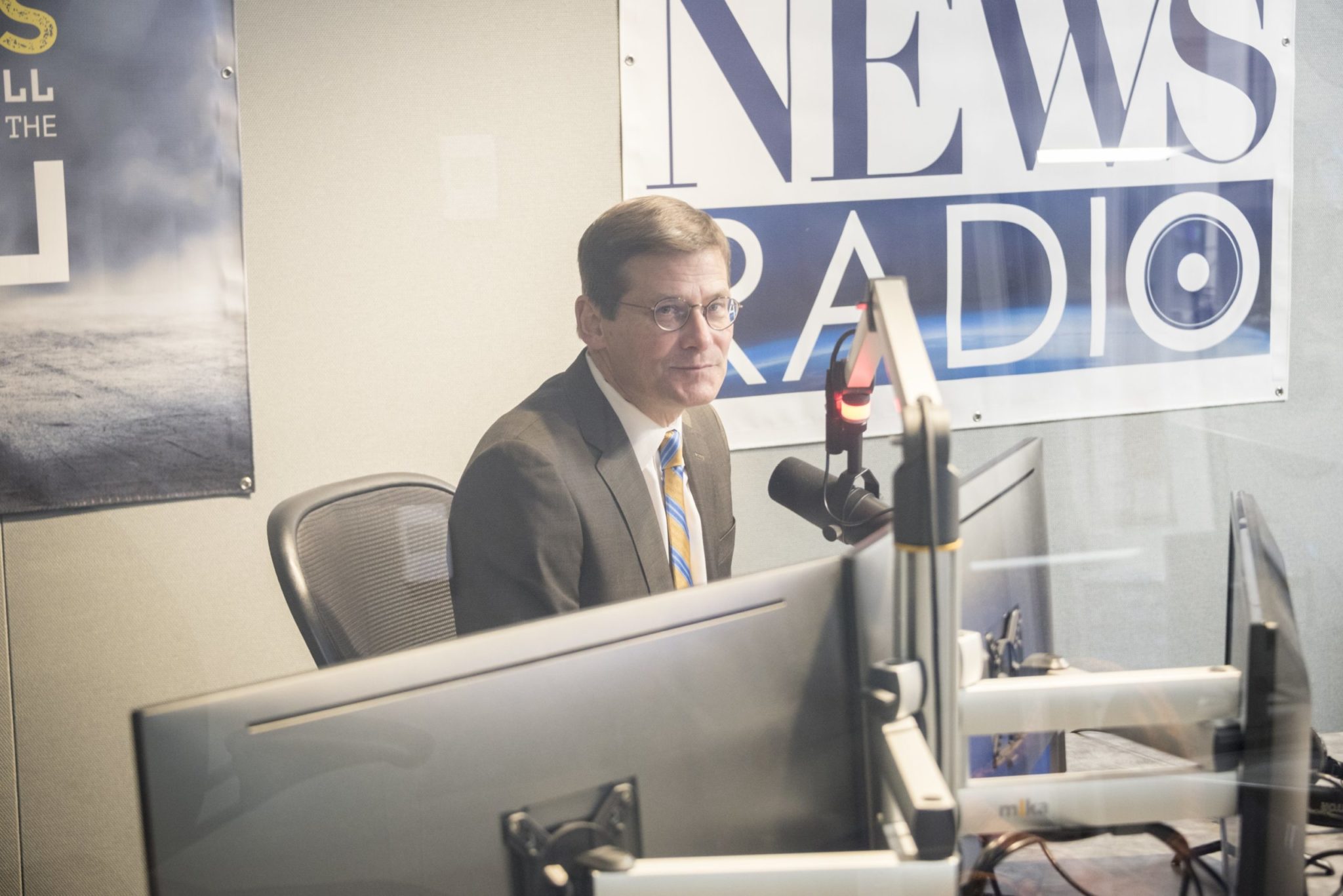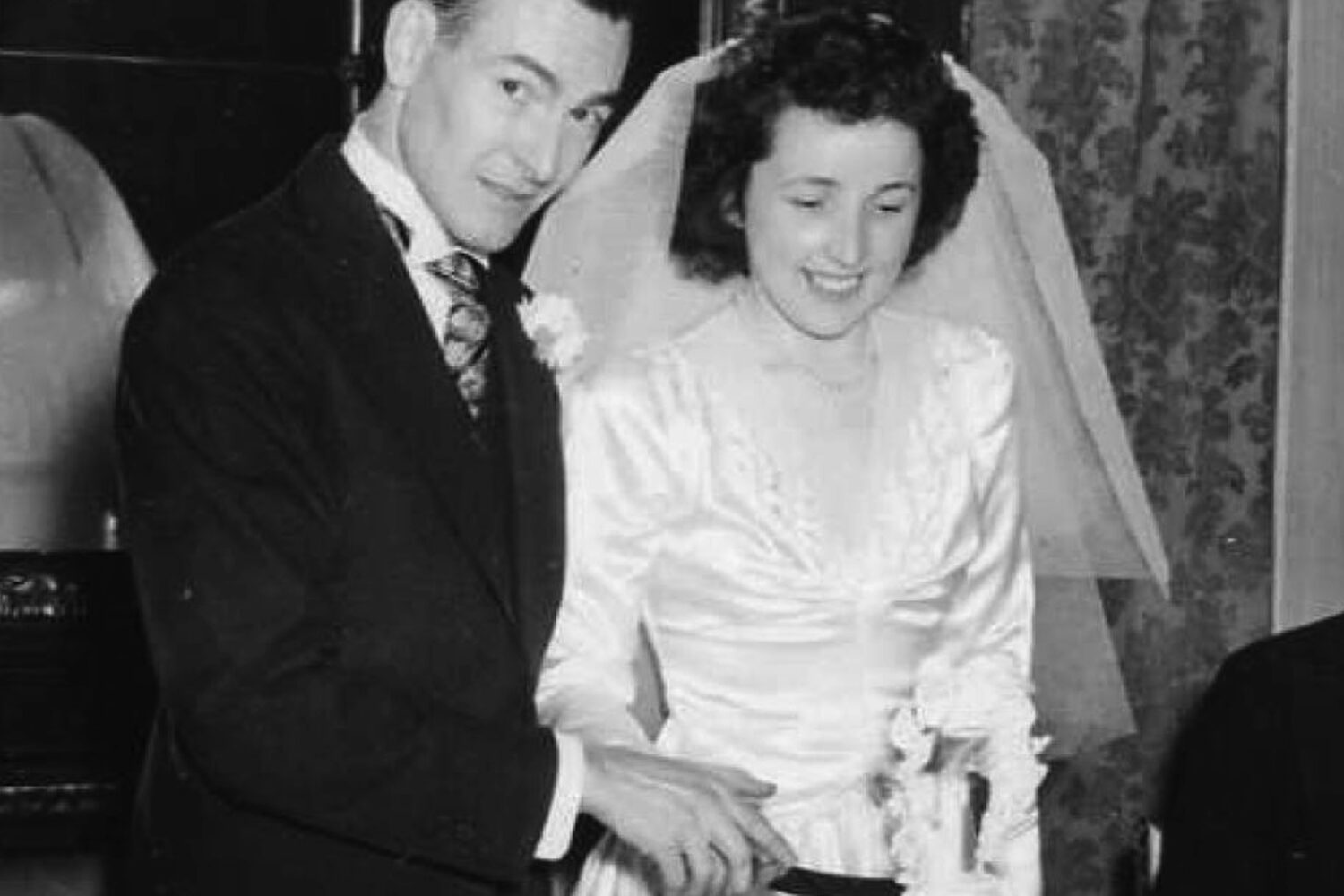One recent afternoon, the former deputy director of the CIA settled into a dingy recording studio to make a podcast. Michael Morell peered over his wire-rimmed spectacles at his guest, Glenn Gaffney, another former official at the CIA. When the two ex-spies began to reminisce, Gaffney complained about the glitzy misperceptions that persisted about his former post, the CIA’s Science and Technology Directorate, distortions that he blamed on Hollywood. “We’re not running around in a bunch of lab coats, blowing stuff up in the basement,” Gaffney said.
“I’ve seen some of your labs, though,” Morell politely interjected.
Gaffney allowed a smirk. “Oh yeah. We have blown stuff up,” he conceded. “Just not in the basement.”
The pair were recording Morell’s weekly podcast, “Intelligence Matters,” and for the ensuing half-hour, they tackled an assortment of prompts: cybersecurity, space warfare, the promise of conquering A.I. At one point, provoked by nothing, Morell offered oblique praise for Gaffney’s assistance in the operation that killed Osama bin Laden. Gaffney had “a very significant role,” Morell told listeners—although, he added, as if his voice could wink, “we can’t talk about what you did.”
Before going any further, let’s agree that such banter—two spies living out their glory days for public consumption—doesn’t exactly present the most incendiary strain of political commentary on offer in 2019. Even so, it may qualify as one of the most unusual.
Morell is to intelligence what Roger Clemens is to baseball: During 33 years at the CIA, he was twice appointed acting director, and formulated the agency’s most important decisions in the decade following September 11. Until 2013, when he retired as deputy director, Morell had never given a television interview. Now he’s a podcaster with a popular show. “Intelligence Matters,” which launched in September of 2017, is approaching 5 million downloads, and CBS, which owns and distributes it, recently announced that it will release a radio-friendly version to its stations nationwide.
How did one of the country’s most press-shy, high-ranking ex-spies manage to stumble on a winning media formula?
“There was a time when people practiced intelligence behind the cloak. And when they retired, you never heard from them again,” says Graham Allison, the director of the Harvard Belfer Center, and who has written extensively on American intelligence. “Now,” he continued, “they have to justify themselves.”
He’s offering a rebuttal to what the president is spewing,” says Sullivan. “It’s a port in a sea of nonsense.
By “now,” Allison, of course, means “the age of Trump,” when “Deep State” has become presidential dictum, Vladimir Putin is an honest broker, and three-letter agencies have found themselves under the hot klieg lights of Washington’s partisan melodrama. (Just this week, six intelligence-branch leaders publicly contradicted several of President Trump’s claims on topics involving Iran and North Korea. Trump says the former is building a bomb, but they’re not; he says the latter isn’t, but it is.) Several polls suggest that a majority of Americans believe the Deep State exists.
“Facts about intelligence are under assault,” Morell says. What was missing, he reasoned, was a media effort marshaled to rebut the Deep State charge. “What I’ve been doing for the president and the national security team for last 33 years, I can do for the American people,” Morell continued. “That’s how I see my role at CBS. It’s an objective, hopefully politically unbiased, nonpartisan way to say, ‘Here’s how I see things.’”
The show is mostly educational programming, with a whiff of whimsy and an inkling of insider fare. But even casual listeners might struggle to call it “nonpartisan.” Former defense secretary Leon Panetta was Morell’s first guest, and the list of those who followed reads like a roster of Trump antagonists: Former CIA and NSA director General Michael Hayden, former director of national intelligence James Clapper, Democratic House Intelligence Chairman Adam Schiff, Obama’s former deputy national security adviser Ben Rhodes, Republican Congressman Will Hurd, and ranking Senate Intelligence member Mark Warner to name some.
It may be tempting, then, to see Morell as the latest of a particular brood: the eager swell of furrow-browed intelligence officials, all clustering impatiently to make their swan debut at the media cotillion. James Comey and Hayden wrote books and struck out on tour; John Brennan and Clapper became talking heads; John Sipher and William McRaven wrote occasional Op-eds. Meanwhile, former federal prosecutor Preet Bharara and four ex-Obama staffers are among the most celebrated podcasters of the Trump era, all offering the same substrate of pseudo-journalism popularly couched as “resistance media.”
Facts about intelligence are under assault,” says Morell. One poll found 74 percent Americans believe in the “Deep State.
Morell sees the situation differently, though. For one, Morell, ever the disinterested analyst, doesn’t eviscerate Trump on Intelligence Matters. He lets his array of big-name guests (whose feelings about Trump are well known) lead patient but emphatic discussions, building a latticework of arguments that, measure for measure, contradict Trump’s view of the world. And on the occasion that Morell and company do linger on what they view as Trump’s abject dereliction, it’s with a gentle probity that puts one less in mind of Ollie North, and more Mr. Rogers. (The tack goes a long way to explaining how Morell has evaded the Star Chamber of the president’s Twitter feed—which is naturally how Morell prefers it.)
“It’s a port in a sea of nonsense,” says Jake Sullivan, a former national security advisor to Hillary Clinton and Joe Biden who has appeared on the podcast. “He’s offering a rebuttal to what the president is spewing,” Sullivan went on. “But it’s an indirect rebuttal.”
If one half of the show descends from Meet the Press, the other half hails from Schoolhouse Rock—a plucky primer on spycraft and diplomacy. Morell excavates veteran hands from the bowels of obscure agencies and commissions who work the undercarriage of national security: Ambassador Joseph DeTrani, an expert on North Korea; Sheronda Dorsey, the CIA’s chief of Talent Acquisition; Eric Edelman, co-chair of the National Defense Strategy commission. If you don’t know these people—and you don’t—that’s one thing Morell clearly wants to change.
Retired Admiral William McRaven, who worked closely with Morell on the bin Laden raid, likened Morell’s line of reasoning to something like a mass inoculation. “The public will have a better perception of them,” he said, speaking of the wonks who populate the show, and, in turn, “be able to dismiss this conspiracy theory about the Deep State.”
The result is a radio hour for the spook set as well as the lay audience. It has the feel of counter-programming tuned to a frequency much too low to reach Planet Trump, but a signal strong enough to reach the like-minded throngs huddled in enemy territory. The CIA, of course, has decades of experience running actual such programs. This time, though, the target country is our own.
Introducing Americans to national security officers like it was Career Day may have seemed quaint, even square, during the Obama years, when it was sexier to be perceived as stealing the secrets (Edward Snowden) than guarding them. But with Trump’s attacks on Comey, Brennan, and special counsel Robert Mueller, the President has given Morell and company the unfathomable gift of reversing this perception, to the frustration of many on the left. (Morell is aware, if amusingly, of the irony. “Yep, that’s true,” is all he’ll say.)
This reversal of fortune may have its own costs worth bearing in mind, though. As Morell himself volunteers, few were more intimately involved in the CIA’s most disputed programs, the ones distinguished by their auxiliary euphemisms: torture (enhanced interrogation techniques), expansion of drones (armed reconnaissance), the invasion of Iraq (faulty intelligence). And critics will note that few of them are re-litigated on Intelligence Matters.
The public will have a better perception” of the spies on Morell’s show, says McRaven. The unspoken goal: “To dismiss this conspiracy theory about the Deep State.
Yet Morell has also distinguished himself by speaking publicly about the agency’s decision-making during these episodes, and he famously takes his failures personally and litigates them personally. “I was the number three on the analytics side of the agency when we got Iraq WMD wrong,” says Morell. “I’m going to have to live with that for the rest of my life. So when you’re willing to stand up and say something like that, people say you’re probably not bullshitting them in the next sentence.” Morell’s former colleagues brushed off any suggestion to the contrary. “There’s just a tremendous baseline of respect among his colleagues,” says Michèle Flournoy, a former Undersecretary of Defense and podcast guest. (McRaven described Morell as “maybe one of the highest integrity guys I’ve ever known.”)
Dean Starkman, a media and ethics expert who has written for the Columbia Journalism Review who now teaches at Central European University in Budapest, shared the general concern that the elite cadre of former intelligence officials who are riding the Trump Wave might manage to turn their past policy controversies into historical footnotes. “Here they are,” Starkman told me, “rehabilitating themselves.”
But Starkman had also recently listened to an episode of “Intelligence Matters” in which Lisa Monaco, President Obama’s Homeland Security Advisor, discusses with Morell the fragility of public institutions like the FBI in the face of Trump’s attacks. “And actually,” Starkman said, “I found myself nodding along.”
From Starkman’s perspective, Morell is offering something rare. “These so-called Deep State institutions are really democratic institutions,” he said, summing up Morell’s thesis. “To really respect what these institutions do,” he went on, Americans need to hear “how they operate, how they do their jobs, and their placed in American democracy.”
Only in 2019, it would seem, can Mr. Rogers be cast into something renegade. But, for the time being, it is. “Beneath the even keel,” says Sullivan, “is a passionate intensity about these institutions.” It’s what makes Morell an interesting foil to Trump, he continued. “Trump operates in a kind of flamboyant, fact-free way. Being the decisive, fact-based and effective communicator? Maybe that’s the new cool.”
Or, at least, a good cover story.



















